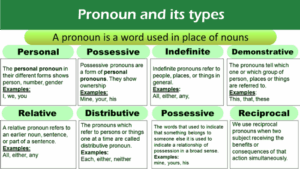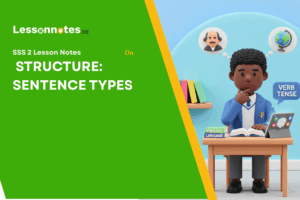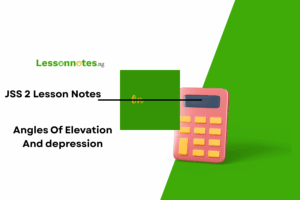Structure: Pronouns SS2 English Studies Lesson Note
Download Lesson NoteTopic: Structure: Pronouns

A pronoun is a word used instead or in place of a noun or a noun phrase. E.g; Ade is coming tomorrow
= He is coming tomorrow.
There are different types of pronouns. They are personal pronouns, possessive pronouns, relative pronouns, reflexive pronouns, etc.
Here, we shall consider personal and relative pronouns.
- Personal Pronouns: They are used to refer to persons (and things) and they are of three types.
i. First Person
a) Singular
– I go to school every day.
b) Plural
– We go to school every day.
ii. Second Person
a) Singular
You come here every Saturday.
b) Plural
You come here every Saturday.
iii. Third Person
a) Singular
He/ She /It {goes to the stream every week.
b) Plural
They go to the stream every week.
Personal pronouns also have object and subject forms.
Consider the box below:
Subject form Object form
I Me
You You(singular &plural)
She Her
He Him
We Us
You You
They Them
It It
- Relative Pronouns
A relative pronoun connects a clause or phrase to a noun or pronoun. This clause describes the nouns. They include: who, whose, whom, which, that, when and where.
Relative pronouns are usually placed directly after the noun or pronoun they modify. Examples include:
- The children whom we love dearly need better health plans.
- The cop who saved the girl was very brave.
- Remember the day when we met for the first time?
- The painting which has such a rich history, is now for sale.
- Never lie to a lawyer whose job is to help you.
WORDS FOR THE WEEK
Abduct, Abrogate, Dirge, Dilatory, Embellish, Entail, Novice, Nefarious, Orthodox, Palliate






















